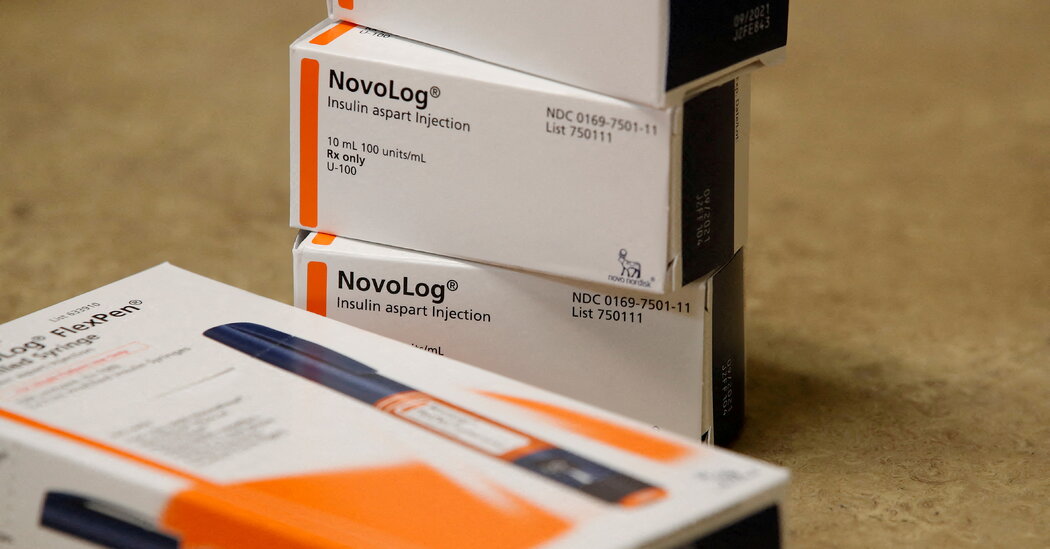The drug company Novo Nordisk on Tuesday said it would reduce the sticker prices of several of its insulin products by up to 70 percent, reversing years of price increases in the face of mounting pressure.
The company did not announce any changes to the out-of-pocket costs for patients with diabetes, but said its existing programs kept those costs as low as $25 per vial for many patients. Instead, the price cut will affect only the list price, which is the starting point for a series of negotiations and discounts that ultimately determine how much a drug costs.
The decision by Novo Nordisk, one of the world’s largest insulin manufacturers, followed a similar move by its rival Eli Lilly this month, after President Biden, lawmakers and patient advocates called on the company to reduce costs for patients. At the start of this year, a federally mandated cap began limiting out-of-pocket costs for insulin to $35 per month for older people covered by Medicare.
Novo Nordisk said its price reductions would go into effect at the start of next year. The list price of a vial of rapid-acting NovoLog, one of the most widely used insulin products, will fall to $72, from $289. The new price was still about twice what it was when NovoLog was introduced in 2000.
Novo Nordisk said its price cuts would also apply to NovoLog injection pens, long-acting Levemir, intermediate-acting Novolin and several generic insulins.
Insulin, which millions of diabetes patients depend on to stay alive, has for years been a point of contention as concern has mounted over high drug prices. Although manufacturers have long had programs designed to limit out of pocket costs, patients don’t always know about them, and even when they do, they can have strict eligibility requirements and be onerous to navigate. Some patients, facing out-of-pocket costs of hundreds of dollars per month, have had to resort to rationing insulin.
The effects of the manufacturers’ price cuts may be limited. There is often a wide gulf between an insulin product’s list price and the net price that the company charges insurers after accounting for discounts and rebates. Insulin manufacturers, which repeatedly increased their prices for years, have blamed pharmacy benefit managers, which act as middlemen to negotiate prices on behalf of health plans, for clawing back larger rebates.
Sanofi, the third of the three manufacturers that dominate the insulin market in the United States, declined to comment on whether it would follow its rivals. Olivier Bogillot, a Sanofi executive, said in a statement that all commercially insured and uninsured patients were eligible for programs that would significantly limit their out-of-pocket costs.



